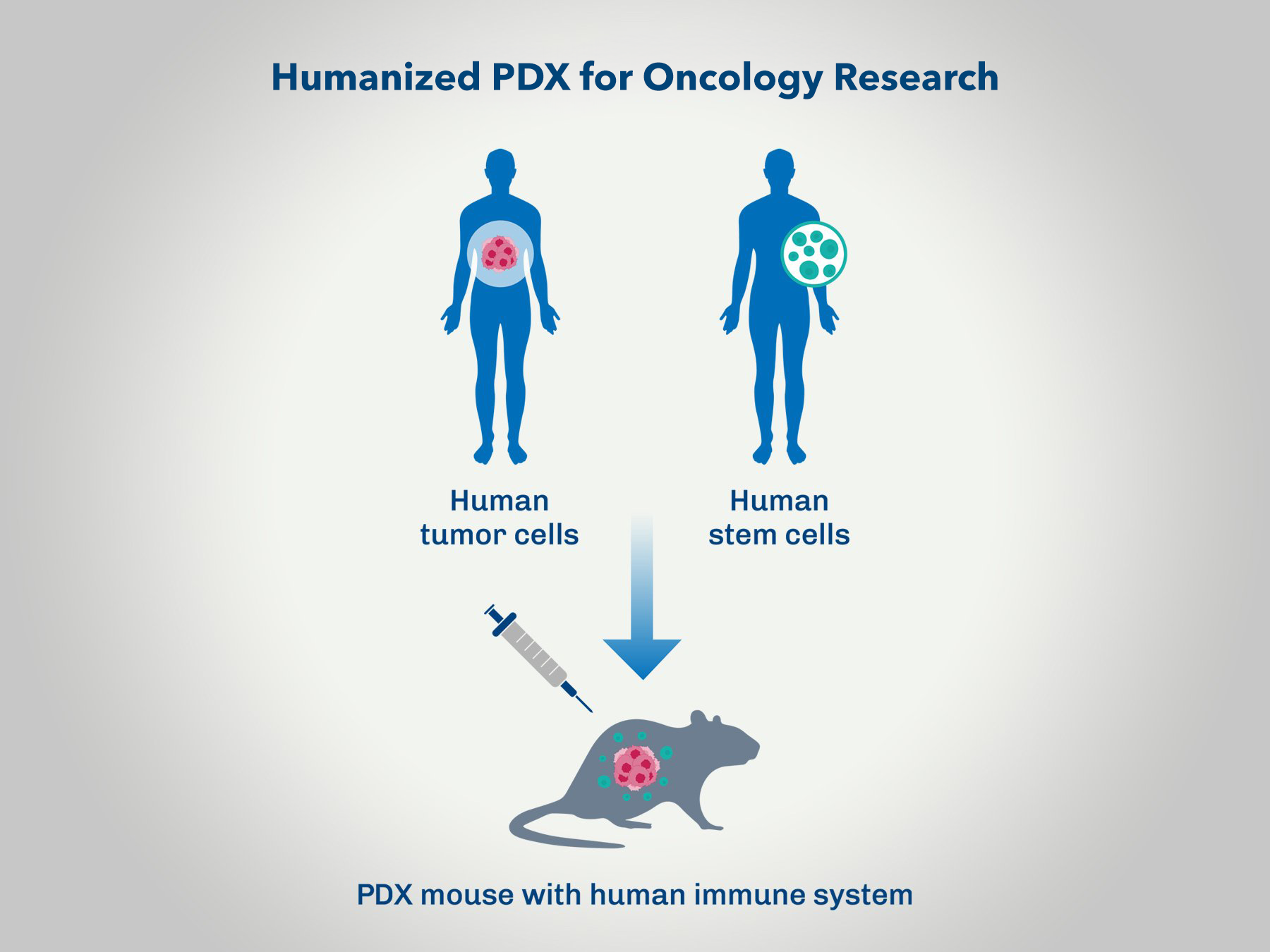Patient Derived Xenograft (PDX) Models
Advance Your Translational Oncology Research
Patient-Derived Xenograft (PDX) models have become essential tools for developing and evaluating innovative cancer therapies. TD2’s preclinical in vivo studies using these highly predictive models help researchers better understand tumor behavior, drug efficacy, and resistance mechanisms. By using PDX models, you can bridge the gap between laboratory studies and clinical outcomes, driving the next generation of oncology treatments.

Features and Benefits:
- Clinically Relevant Models: PDX models closely mimic human tumor biology, maintaining the heterogeneity and genetic integrity of the original patient tumor.
- Customizable Study Designs: Tailored solutions for drug efficacy, combination therapy, and biomarker development, aligned with your research objectives.
- Rapid Turnaround: Efficient study timelines with dedicated project management to accelerate your drug discovery process.
- Validated Across Multiple Cancer Types: Comprehensive PDX libraries available for Glioblastoma (GBM), breast, lung, colorectal, pancreatic, and other cancer types.
- Translational Research Insight: PDX models provide critical insights into tumor microenvironment interactions and drug resistance.
Request more information about our PDX Models
Contact our experts to help advance your drug development with TD2's Comprehensive Oncology Ecosystem.

PDX Models for Orthotopic and Humanized Studies
TD2 offers a large library of PDX models specifically to be used in humanized mouse studies or orthotopic studies.
Humanized PDX studies allow researchers to explore the impact of human immune cells in cancer progression and response to therapies. Humanized PDX models are indispensable for evaluating immunotherapies, including immune checkpoint inhibitors, bispecific antibodies, and CAR-T cell therapies.
Key Advantages:
- Co-engraftment of human immune cells and patient-derived tumors for advanced immuno-oncology studies.
- Ideal platform for testing novel immunotherapies in a highly relevant in vivo setting.
- Study immune system-tumor interactions in real-time to understand treatment response.
For a more physiologically relevant approach, orthotopic PDX models provide a powerful tool for understanding tumor growth and metastasis within the appropriate organ environment. By transplanting patient-derived tumors into their corresponding anatomical sites, these models enable more accurate studies of tumor biology and drug response.
Key Advantages:
- Mimics the natural tumor microenvironment, offering insights into tumor-stroma interactions and metastatic behavior.
- Enhanced ability to study invasion, metastasis, and drug penetration in situ.
- Improved prediction of clinical outcomes compared to traditional subcutaneous models.
![]()
PRECLINICAL
Models and Services
TD2’s service offering is consistently expanding and currently includes:
Model Systems:
- Syngeneic Tumor Models
- Orthotopic Tumor Models
- Patient-derived tumor xenograft models (GBM)
- Humanized Mouse Models
- Diet-Induced Obesity Tumor Model
- Adoptive Cell Therapy Models
- Cell Line Derived Xenografts Models (CDX)
Bioanalytical Services:
- Flow Cytometry
- Metabolomics and Proteomics Analysis
- DMPK/ADME services
- Non-GLP Safety/Tolerability
In vivo and In vitro Characterization
- In vitro Pharmacology Assays
- In vivo Optical Imaging
- Efficacy Evaluation
Therapeutic Evaluation:
- Antibody Drug Conjugate (ADC)
- Small Molecule
- Cell Therapy
- Checkpoint Inhibitors
- mAbs
- Vaccines
- Gene Therapy
Additional Resources
GET STARTED
Put your clinical trial in the hands of a team who believes in your research as much as you do.
Are you ready to start your preclinical trial? Partner with a collaborative oncology CRO that believes in your treatment as much as you do. Take the first step today and contact our experts.




